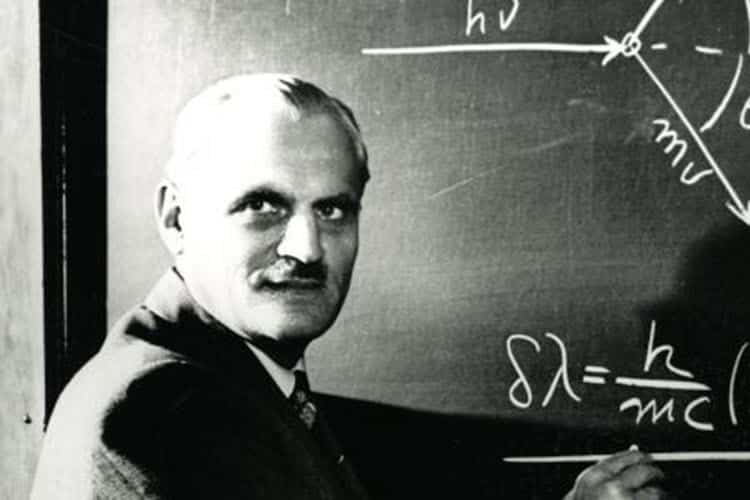Arthur Compton: Pioneer of Quantum Mechanics and Nobel Laureate

Arthur Compton (10 September 1892 – 15 March 1962) was an American physicist who made significant contributions to the study of X-rays and the behavior of electrons. He was awarded the Nobel Prize in Physics in 1927.
Life and Career
He was born on 10 September 1892, in Wooster, Ohio, US. In 1913, he graduated with a degree in physics from Wooster College in Ohio. He went on to pursue post-graduate studies in physics at Princeton University, where he earned his Ph.D. in 1916. After completing his studies, Compton joined the faculty at the University of Minnesota, where he worked as a professor of physics for several years.
He then moved to the University of Chicago, where he spent the remainder of his career and made some of his most significant contributions to the field of physics. He conducted groundbreaking research in the field of physics, particularly in the areas of X-rays and quantum mechanics. His most significant contribution was the discovery of the scattering of X-rays by electrons, which is now known as the Compton effect. This discovery provided experimental evidence for the wave-particle duality of light and helped to lay the foundation for the development of quantum mechanics.
Compton also made important contributions to the study of cosmic rays and the behavior of electrons in magnetic fields. His research in these areas helped to deepen our understanding of the structure and behavior of matter and the nature of the universe. During World War II, Compton played an important role in the development of the atomic bomb as part of the Manhattan Project. He served as the head of the Metallurgical Laboratory at the University of Chicago, which was responsible for developing the nuclear reactor that produced the first controlled nuclear chain reaction.
In addition to his scientific contributions, Compton was also an advocate for peace and social justice. He served as the chairman of the American Association for the Advancement of Science and was a vocal critic of nuclear weapons and the arms race. He died on 15 March 1962, in Berkeley, California, US.
Award and Legacy
He was awarded the Nobel Prize in Physics in 1927 for his work on the scattering of X-rays by electrons, which is now known as the Compton effect. His commitment to using science for the betterment of humanity, as well as his efforts to promote international cooperation and disarmament, continue to inspire scientists and advocates for peace and social justice today.
Observer Voice is the one stop site for National, International news, Sports, Editor’s Choice, Art/culture contents, Quotes and much more. We also cover historical contents. Historical contents includes World History, Indian History, and what happened today. The website also covers Entertainment across the India and World.

